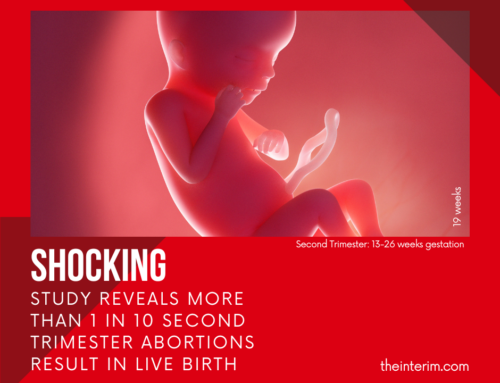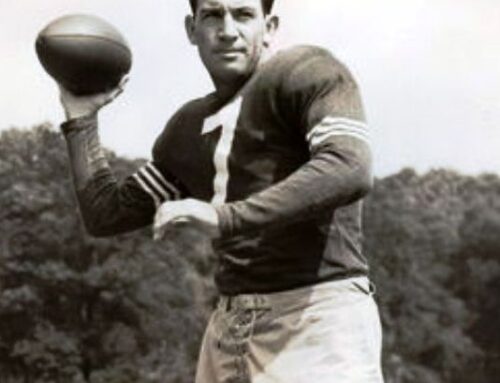More than 15,000 Canadian pro-lifers took part in the National March for Life in Ottawa, addressed by MPs and numerous pro-life and religious leaders addressed the crowd. And this year, something different happened: the media covered it.

Campaign Life Coalition organizes the annual march to mark the day in 1969 when Pierre Trudeau’s Omnibus bill broadened the abortion law and effectively legalized abortion-on-demand. The theme of the first march in 1998 was “A Day of Infamy,” but since then the march has re-focused its attention from looking back at the injustice of the change in law to looking forward with hope to a day without abortion.
At the first march, most of the 200 participants were pro-lifer veterans, many of them around when the law was first amended in 1969. But in recent years the majority of participants were young people – organizers estimate that 80 per cent of those who took part this year were under 25 – who came with their schools and have lived their entire lives during an age of legal abortion. Talking to the youth, speaker Mario St. Francis, a former model, told the assembled thousands on the Hill, “You hold the future in your hands.”
Four MPs – Conservatives Stephen Woodworth (Kitchener Centre), Scott Reid (Lanark-Frontenac-Lennox and Addington), David Sweet (Ancaster-Dundas-Flamborough-Westdale), and Royal Galipeau (Ottawa-Orleans) — attended despite the fact Parliament had not yet resumed. Former Liberal MP Pat O’Brien introduced the MPs and pointed out that the number of MPs present was small due to the fact that most are back in their ridings following the May 2 federal election.

Turning his attention to the crowd, O’Brien said, “it’s critical that you come here every year” to show Parliament “that you are pro-life Canadians, that you represent that millions of Canadians who understand that this country is a laughing stock because it simply has no law speaking to the question of the right to life. And that must stop, and that will stop.”
Woodworth pointed out the absurdity of the law which states that a human being is not a legally protected person until it is completely outside and detached from his or her mother. “Is that consistent with modern medical science,” he asked. “Is that consistent with a modern understanding of human rights.”
Reid recounted that when he was first elected in 2000, he was told that abortion was a “settled issue.” He insisted that in 2011, “This is not a settled issue.” He predicted that the pro-life movement and support for pro-life initiatives will continue to grow because of the “inherent rightness of the cause” and “the determination all of you have shown.”
Sweet called for more family friendly policies so more women would feel that they could bring their children into a safe and secure world. Galipeau urged young people to become more involved and hold their elected officials accountable on the issue of life.
Archbishop Gerald Lacroix, the new Primate of Canada and Archbishop of Quebec City, officially opened the event with a prayer, and Ottawa Archbishop Terrence Prendergast introduced the Catholic bishops of Peterborough, Saskatoon and Sault Ste. Marie, as well as Carl Reid, the head of the Anglican Catholic Church of Canada, and Bishop Stephen Victor Chmilar of the Ukrainian Catholic Eparchy.
Don Hutchinson, legal counsel to the Evangelical Fellowship of Canada, said “being pro-life simply requires understanding that if a life is human after birth it must be human before birth.”
David Bereit, founder of 40 Days of Life, challenged the audience: “Will you make sure that your elected officials know to re-open the abortion debate and to establish protections for every child in the womb. Will you commit today to do everything you can until that day when abortion ends in Canada and no more women cry and no more children die.”
Campaign Life Coalition national president Jim Hughes told Dunn Media, which produced short documentaries of the event for CLC and posted them online, that with the numbers involved and the enthusiasm of the young people, “the future looks rosy.” Hughes said politicians are taking note and that it also sends a message to other pro-lifers, including those who might want to run for public office some day that they will be supported. “Eventually we’ll are going to have the majority in Parliament we will need to pass pro-life legislation,” said Hughes.
Hughes told The Interim that the record-setting attendance at the march – which was expected by organizers to be lower due to the recent federal election – demonstrates that the “debate is being opened” and will not be easily re-closed. Asked how to maintain the positive momentum of the National March for Life, Hughes said “people must remain informed and pray and be open to the doors that are opened through prayer.”
It took two hours for the march to wind its way through the streets of Ottawa, including past the Morgentaler abortion facility on Bank St., just blocks away from Parliament Hill. Many of the marchers chanted and held signs. Hughes noted that the festive mood, while ostensibly strange considering the issue thousands came to highlight, shows that the pro-life movement is one filled with joy and hope.
After the march, a group of men and women from Silent No More Awareness spoke about the physical, emotional and spiritual aftermath of their abortion experience with the hope that others would not make the same mistake. The day’s proceedings on the Hill ended with prayers led by Ukrainian Catholic priests which was open to people of all faiths.
Speaking at the Rose Dinner in the evening, David Bereit said that when he looked upon “the crowd of some 15,000 passionate, youthful, optimistic pro-lifers, I knew victory is ahead.” He also described the positive effects that 40 Days for Life is having, helping women change their minds about abortion, converting abortion workers, and closing abortion facilities.
About 400 people attended the Rose Dinner and another 800 youth took part in the youth dinner where St. Francis, a male model and pro-life convert, spoke. Mario St. Francis, a former model and actor who abandoned his former career to become a Catholic speaker, explained his conversion. He said the world did not need more fashion models, but rather “models of a culture of life.”
The following day, more than 800 high school students took part in the Youth Conference. Bereit was the feature speaker, and persecuted Carleton student Ruth Lobo and internet sensation Lia Mills also addressed the conference. There were also numerous workshops students could choose from including St. Francis’s “Being Pro-life: a Man’s Perspective,” Deborah Morlani’s “Conceived in Rape,” Alisssa Golob and Rebecca Richmond’s “Pro-life Activism,” and Angelina Steenstra’s “Post-Abortion Ministry.”
The evening before the March, there was a Candlelight Vigil at the Canadian Human Rights Monument. More than 400 people attended the witness which ties the killing of the unborn to other human rights injustices.
Alissa Golob of Campaign Life Coalition Youth told Dunn Media that the march gets “the word out that there is a growing movement and that we won’t back down until abortion is over.”
For the first time, there was widespread media coverage of the event. At noon, the local CTV broadcast and CBC Newsworld provided live coverage of the assembling of the crowd leading up to the speakers. There was coverage on CBC and CTV that evening and in most major newspaper the next day including the National Post, Globe and Mail, Toronto Sun, and Toronto Star, plus those that carried the Canadian Press story on the march.
Unfortunately, some reporters chose to low-ball the attendance estimates, with both the CBC and National Post claiming just a few thousand, but the Toronto Star over-estimated the crowd at 18,000. CLC pegs the number at just over 15,000 – 2,800 more than the record crowd in 2010.
Hughes was interviewed by CTV Ottawa at noon and he told The Interim that it was very respectful and professional, with the host letting Hughes make most of the points he wanted to make without the anchor trying to score any political points. Hughes said that while there are exceptions, the media is improving its coverage of the march every year. Asked to explain why the change, Hughes said, “it’s hard to dismiss 15,000 people.”
There were also provincial marches for life in Victoria, Edmonton, Regina, Winnipeg, Charlottetown, Fredericton, Halifax, and St. John’s.

Thousands of B.C. pro-lifers took part in the annual March for Life in Victoria.

Hundreds of Saskatchewan pro-lifers are joined by local bishops and MLAs in Regina.

The Knights of Columbus came out to support the march in Winnipeg.




